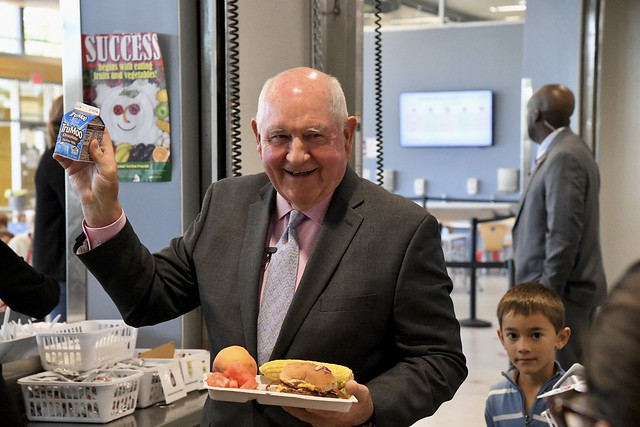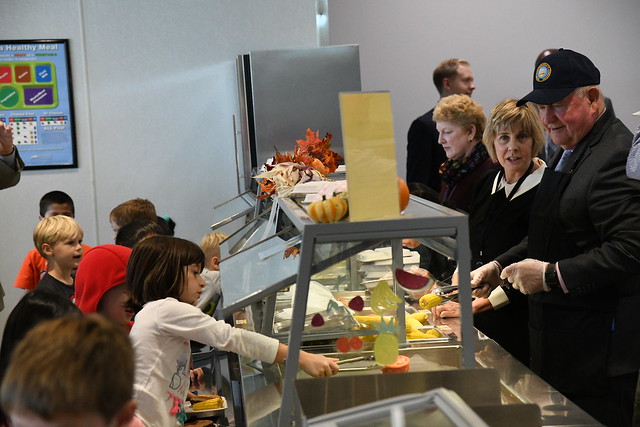
Earlier this week, USDA Secretary Sonny Perdue and Acting Deputy Under Secretary for Food, Nutrition, and Consumer Services Brandon Lipps joined students in New Jersey, Virginia and the District of Columbia for wholesome school lunches in celebration of National School Lunch Week, as proclaimed by President Trump. Nearly 100,000 schools and institutions serve almost 30 million children through the National School Lunch Program. Secretary Perdue visited Discovery Elementary School in Arlington, Va., where he met with the school’s nutrition professionals, and served the children meals before joining them for lunch.

Last year, USDA took action to provide menu planning flexibilities that underscore USDA’s commitment to assisting schools in serving nutritious and appealing school meals. Responding to school nutrition professionals, USDA began making changes to school meal program rules to provide more options and flexibility on whole grains, sodium, and milk. An interim rule making these changes, the “Child Nutrition Programs: Flexibilities for Milk, Whole Grains, and Sodium Requirements” rule is now in effect. USDA plans to release the final version of this rule later this year.

Acting Deputy Under Secretary Lipps kicked off National School Lunch Week on Monday with a visit to Eagle Academy Public Charter School (PCS) in Washington, D.C., where he ate with the students and toured their school garden.
National School Lunch Week occurs as USDA continues to celebrate Farm to School Month, intended to focus attention each October to celebrate partnerships between schools and farmers to introduce local produce into lunchrooms and classrooms. Eagle Academy PCS received a USDA Farm to School Grant in 2017, which helped bring locally-grown produce directly to the lunchroom. “Farm to school gives schools the flexibility to serve appealing, seasonally-available foods, raised by local farmers,” Lipps said. “It is also a great tool for educating students so they understand that these nutritious foods are grown by America’s farmers.”
On Wednesday, Lipps joined students for lunch at Manalapan-Englishtown Middle School in Manalapan, N.J. During the visit, Lipps also met with the school’s food service management company and nutrition officials from the state of New Jersey. “Children all across America deserve world-class food service – and schools are best positioned to deliver that service in their communities,” Lipps said. “USDA is committed to providing the local flexibilities they need to do what they do best – serve our kids nutritious meals they want to eat.”
USDA’s FNS works to reduce food insecurity and promote nutritious diets among the American people. The agency administers 15 nutrition assistance programs that leverage American’s agricultural abundance to ensure children and low-income individuals and families have nutritious food to eat. FNS also co-develops the Dietary Guidelines for Americans, which provide science-based nutrition recommendations and serve as the cornerstone of federal nutrition policy.




